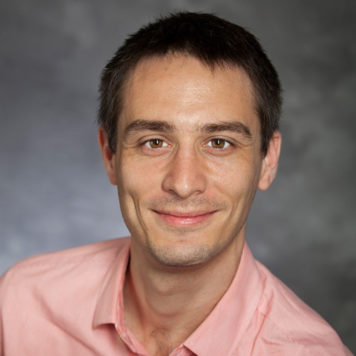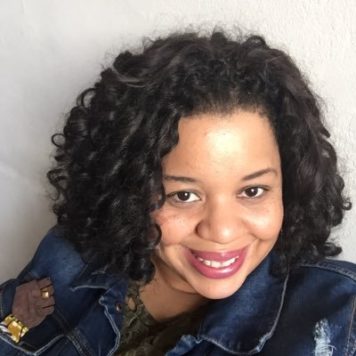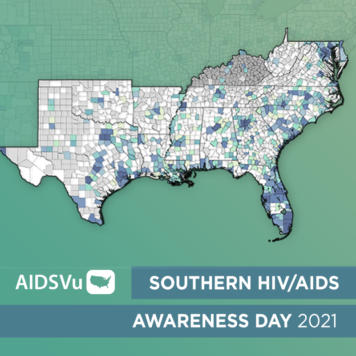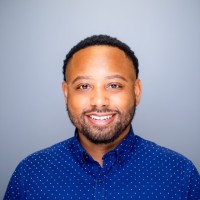Neena Smith-Bankhead, MS is currently the director of The EnCORE Center and Administrative Director for the COMPASS Coordinating Centers. EnCORE is one of the newest centers in the Emory Centers for Public Health Training and Technical Assistance in the Rollins School of Public Health and houses the Emory COMPASS Coordinating Center.
Kia Colbert, MPH, CHES is the current Director of the Emory COMPASS Coordinating Center and provides strategic supervision & oversight for the programs, initiatives, and activities of the Center.
The Gilead COMPASS Initiative® will celebrate the 5th Anniversary of the initiative August 18th – 20th, 2023 with the launch of a Special Edition Journal – The Journal of Health Care for the Poor and Underserved at Meharry Medical College in Nashville, TN. This special edition will highlight the work of COMPASS partners and the successes of the initiative and funded projects.
Neena, You have been working with communities impacted by HIV for over 30 years; what drew you to this line of work, and what drives your passion for working with communities impacted by HIV?
Neena Smith-Bankhead: My passion for this work started as a college student at Penn State, where I was a peer educator and eventually student director for the on-campus peer sexual program. I started learning about college populations and the challenges we were facing related to HIV, other STIs, and unintended pregnancy. As a peer educator, I enjoyed having open, frank conversations about sex and sexuality, leading me down this career path.
What drives me today is the desire to address health inequities in communities like the one I grew up in, that are often disproportionately impacted by HIV, many other health issues, and equitable access culturally appropriate healthcare. HIV is a social justice issue and there are several factors that impact people’s potential risk for health issues. I want to help minimize these in any way possible.
What is the Gilead COMPASS Initiative® (COMmitment to Partnership in Addressing HIV/AIDS in Southern States), and what is Emory University’s role in the initiative?
Kia Colbert: The COMPASS Initiative is a more than a $100M commitment from Gilead Sciences, Inc. over 10 years to support organizations working to address the HIV/AIDS epidemic in the Southern United States. The Initiative provides capacity building through each of the implementing partners and focuses on providing concentrated investments in the region to reduce HIV-related health disparities, build awareness, advance education, and reduce stigma. The Emory University Coordinating Center focuses on capacity building, infrastructure development, and creating shared knowledge. Emory provides trainings, grants, collaborative learning opportunities and leads the cross-coordination efforts between all of the implementing partners.
Neena Smith-Bankhead: Additionally, we support communication across all the COMPASS Coordinating Centers to ensure that we are providing services in alignment with the goals of COMPASS, and collectively understand the needs across the South.
While the South made up 38% of the country’s population in 2021, the region accounts for 52% of new HIV diagnoses. The COMPASS Initiative® works to support and partner with local organizations in the South to address specific community needs. Why is this approach effective when working to end the HIV epidemic in the region?
Neena Smith-Bankhead: One focus of the initiative is to make financial investments in the South. Traditionally, the South has had inadequate resources to support the agencies there to address the needs of people living with HIV. The Gilead COMPASS Initiative® brings partners together with different areas of expertise to provide capacity building support to address these needs. We highlight and address needs across the South, advocate for additional resources, and help build the capacity of organizations in the South.
For example, during the height of the COVID-19 pandemic, we were able to support many of the Southern community-based organizations that did not have the resources they needed to transition their services to virtual. COMPASS was able to provide financial support and technical assistance through the coordinating centers.
Kia Colbert: What makes this approach unique is that it is community-centered. These organizations were already here doing amazing work, but there were not many resources to focus on strengthening their organizations. We are working alongside our partners to help them be sustainable and continue to do the lifesaving work to end the HIV epidemic in the South in the future.
2023 marks the 5th anniversary of the COMPASS Initiative. In those five years, the COMPASS Initiative has trained over 10,500 people and worked with over 350 partners. Can you tell us more about the impact this initiative has had on ending the HIV epidemic in the South?
Kia Colbert: We have accomplished so much in the first five years. We have been able to work with more than 350 organizations that have been funded by the COMPASS Initiative®. More than 300,000 people have been served through training, coaching, and other related services, and more than 340,000 people have been reached through our in-person events. Additionally, our partners have been able to create more than 3,000 meaningful new partnerships.
Neena Smith-Bankhead: Building a network of organizations that work together to help address the epidemic across the South, and building the capacity of organizations is essential. No one organization can do everything alone, but when organizations build partnerships, they are able to leverage the funding that they have received through the COMPASS Initiative® to both expand their reach and impact, and garner funding from other resources outside of COMPASS to build their capacity to continue to serve their communities.
You are about to release your “mapping training” resource to support your partners use of maps such as AIDSVu in the development of their programs and the expansion of their services. What led you to develop this new resource?
Neena Smith-Bankhead: This online training resource will help our partners visualize the epidemic in their communities so they can develop services and programs that is backed by data. Sometimes, data can be intimidating. However, we know that there are several ways that people can visualize and understand it using a visual representation such AIDSVu’s maps. Along with the drivetime maps we’ve developed in partnership with AIDSVu, this training will help make the data more realistic for people.
The mapping training includes a series of online, self-paced sessions. Users can complete the different lessons and learn how to use maps to tell their community’s story, support grant writing applications, support program development, and identify issues that they may want to advocate for in their communities.
The mapping module provides an alternative way to view, interpret and utilize data to agencies, programs, and other services. To develop this training, we partnered with AIDSVu and other centers within the Emory Centers for Public Health Training and Technical Assistance and are excited to launch it on Southern HIV AIDS Awareness Day.
August 20 is Southern HIV/AIDS Awareness Day, a day to initiate dialogues about HIV and reduce HIV stigma in the Southern United States. What message do you have for those who are impacted by HIV in the South?
Neena Smith-Bankhead: One message I have is that HIV is not over. There is still a lot of work to be done. Although we may have made significant strides when it comes to treatment and medication, we have a long way to go to address the social determinants of health that drive the epidemic. I would encourage people to continue to discuss and address the impact of stigma and social determinants of health that have impact on our ability to have equitable access to healthcare.
Kia Colbert: We have come a long way, but we still have work to do. We cannot only focus on medicine to end the Southern HIV epidemic HIV. We must address and recognize that we live in a complex world with many intersections that impact HIV. To end the epidemic, we must address all of them.




